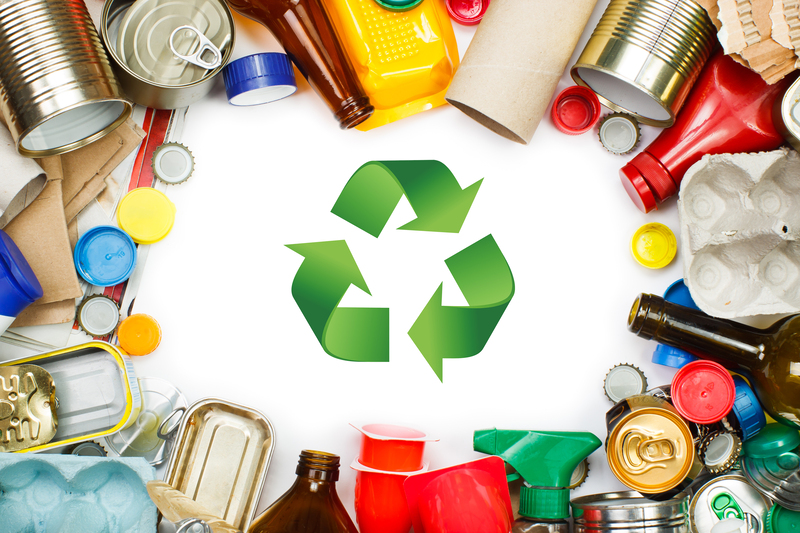Empowering Individuals to Take Charge of PPE Waste Management
The COVID-19 pandemic brought personal protective equipment (PPE) into our daily lives--face masks, gloves, gowns, and face shields are now common items found not only in hospitals but everywhere, from supermarkets to household drawers. However, the improper disposal of PPE has swiftly emerged as an environmental crisis in its own right. Empowering individuals to take charge of PPE waste management is now more important than ever. In this article, we explore the role each of us can play in effective PPE waste disposal, why it matters, and practical steps to foster sustainable change.

Understanding the Importance of PPE Waste Management
PPE waste management is the process of collecting, disposing, and properly treating used protective equipment. While PPE is crucial for preventing disease transmission, its incorrect disposal can significantly harm public health and the environment. Here's why managing this unique waste stream is crucial:
- Environmental Impact: Plastics in disposable masks and gloves can take centuries to decompose, polluting oceans, clogging drains, and harming wildlife.
- Health Hazards: Careless disposal poses risks of contamination and disease transmission, especially to sanitation workers and the public.
- Waste Volume: Globally, an estimated 129 billion masks are used monthly, generating massive waste.
- Resource Consumption: Single-use PPE demands constant raw material extraction and energy, driving up carbon footprints.
Empowering people to actively participate in PPE waste management directly mitigates these issues, fostering healthier communities and a cleaner planet.
Why Individual Empowerment Matters in PPE Waste Management
While large-scale waste management relies on government and industry protocols, individual actions are equally vital. Here's how personal empowerment can drive positive change:
- Greater Awareness and Accountability: Knowing how your decisions impact the world encourages more responsible behaviour.
- Reducing Systemic Pressure: When individuals correctly dispose of or recycle PPE, it lightens the load on municipal systems.
- Creating Demand for Better Solutions: Widespread participation encourages innovation and policy changes on sustainable PPE and its disposal.
- Community Influence: One empowered person can influence their circle, multiplying positive practices.
Empowering individuals to take charge of PPE waste disposal is not only a moral responsibility but also a practical necessity in today's interconnected world.
PPE Waste: What Materials Are We Actually Dealing With?
Before exploring disposal strategies, it's essential to understand the waste stream's composition. Common PPE includes:
- Single-use masks: Often made from polypropylene, these cannot be recycled with regular plastics.
- Disposable gloves: Usually latex, vinyl or nitrile--each with specific degradation and recycling profiles.
- Face shields and goggles: Mainly polycarbonate or PET plastic.
- Protective gowns and shoe covers: Non-woven synthetic fibers, generally non-biodegradable.
Many of these materials are highly durable, underscoring the importance of safe and effective personal PPE waste management.
Practical Steps: How Individuals Can Take Charge of PPE Waste Management
1. Proper Disposal at Home and in Public
- Do not litter: Always place used PPE in a lined trash bin. Never discard masks or gloves on the ground or in open receptacles.
- Seal before disposal: Place used PPE items in a separate bag and tie it securely before putting in general waste to minimize contamination risk.
- Mark for sanitation: If possible, label the bag "infectious waste" to inform waste collectors.
2. Understand Your Local Waste Guidelines
- Check regulations: Many cities have set specific guidelines for PPE waste. Some have "red bins" or designated drop-off points.
- Follow updates: Guidelines may change according to infection rates, so stay informed.
3. Explore Reusable Alternatives
- Opt for reusable masks: Cloth masks can be washed and reused, drastically cutting waste. Ensure they meet safety requirements.
- Reusable face shields: Many can be disinfected and reused, unlike disposable models.
4. Consider PPE Recycling Initiatives
- Locate recycling points: Some companies and NGOs offer collection and recycling for PPE. TerraCycle, for example, runs programs globally.
- Support innovation: Back brands turning PPE waste into bricks, benches, or road material.
5. Participate in Community Education and Drives
- Share knowledge: Educate friends, family, and colleagues on safe PPE waste disposal practices.
- Organize local drives: Collaborate to collect PPE waste for safe disposal or recycling.
- Advocate for change: Petition authorities to offer more PPE waste bins and recycling options.
6. Practice Personal Hygiene While Handling PPE Waste
- Always wash your hands: Immediately after handling used PPE.
- Avoid touching your face: To prevent potential self-contamination.
Simple yet effective steps at the personal and community level can collectively lead to significant improvements in PPE waste management outcomes.
Pioneering Examples: Communities and Individuals Making a Difference
Several communities and eco-entrepreneurs worldwide have shown remarkable initiative in leading PPE waste management solutions:
- Mumbai, India: Organized collection drives turn used masks into paving tiles for footpaths.
- UK universities: Student groups partner with recycling firms to process thousands of face coverings responsibly.
- Individual innovators: Social media influencers raise awareness about PPE littering, inspiring followers to act.
- NGO partnerships: Volunteer groups distribute clear disposal instructions in local languages in high-use areas.
Individuals truly have the power to inspire change, whether through spreading information, volunteering, or inventing new eco-friendly practices.
Tools and Resources for Taking Charge of PPE Waste Management
- Educational Campaigns: Health departments regularly release updated guidelines; follow WHO and local authority websites for reliable tips.
- Waste Locator Apps: Tools like Earth911 and Recycle Nation can help identify local recycling points for PPE items.
- Community Programs: Join local clean-up groups, recycling initiatives, or start your own awareness campaign.
- Online Guides and Webinars: Learn directly from environmental NGOs about PPE best practices.
Common Challenges Faced by Individuals in PPE Waste Management
Empowering individuals to take control of PPE waste management isn't without hurdles. The most prevalent difficulties include:
- Lack of information: Many are unclear about which items are recyclable or require special handling.
- Limited disposal infrastructure: Absence of dedicated PPE bins outside healthcare settings.
- Perceived inconvenience: People may resist behavior change due to habit or lack of motivation.
- Contamination risk: Fear of handling potentially infectious waste can deter some from proper disposal.
- Limited alternatives: In some regions, reusable PPE is unavailable or unaffordable.
Identifying these roadblocks is the first step. Solutions involve both systemic changes by authorities and proactive community engagement driven by empowered individuals.

The Path Forward: The Role of Policy, Innovation, and Empowered Individuals
Policy Interventions
- Mandating PPE waste segregation: Laws requiring PPE to be separated from standard waste simplify downstream recycling and safe disposal.
- Funding research into biodegradable PPE: Supporting innovation creates more sustainable alternatives.
- Providing incentives: Offering tax breaks or subsidies to companies and communities promoting PPE recycling.
Innovation in Products and Processes
- Biodegradable materials: Researchers are developing compostable face masks and gloves to eliminate plastic pollution worries in the future.
- Efficient recycling systems: New technologies can now break down contaminated PPE for reprocessing.
Empowered Individuals--The Heart of Change
- Persistent education: Keep the conversation about PPE waste alive in homes, workplaces, and social platforms.
- Lead by example: Demonstrate proper PPE disposal and encourage others to follow suit.
- Champion local initiatives: Take the initiative to introduce or promote PPE waste collections in your community.
It is clear that true progress depends on a combination of policy, technology, and, most critically, individual actions. Empowering individuals in PPE waste management is not just an option--it's a necessity for a sustainable future.
Conclusion: Join the Movement--Empower Yourself and Others for PPE Waste Management
The surge in PPE usage is one of the defining features of our modern era, intertwining health security with environmental responsibility. While challenges are real, the potential for positive change is immense when individuals, equipped with knowledge and motivation, take the lead in personal PPE waste management.
- Educate yourself and your community about PPE waste.
- Practice safe, responsible disposal and seek out recycling where possible.
- Advocate for better policies and infrastructure to make sustainable PPE waste management accessible to all.
- Embrace new habits and reusable alternatives where possible for a cleaner tomorrow.
Empowering individuals to take charge of PPE waste management not only ensures a safer and greener environment, it forges a global movement toward sustainability, innovation, and collective responsibility.
Together, let's turn the tide on PPE pollution, starting with the choices we make today.